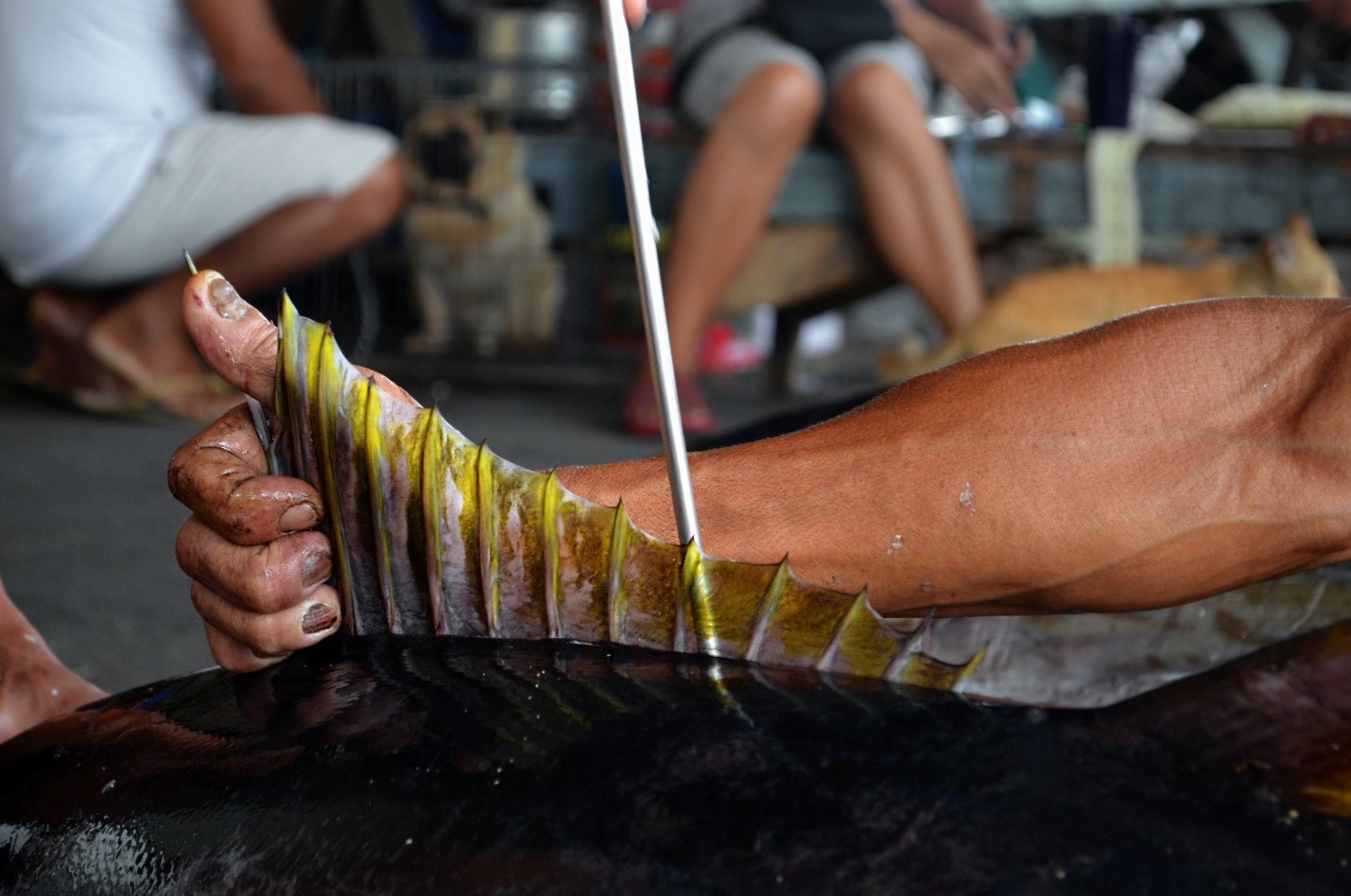From Hook to Cook: Added Value for High-Value Fish
August 2018

A yellowfin tuna is graded with a testing rod. Class-A tuna fetches around P300 per kilogram. The rising demand for sashimi in the 1970s spurred the global gold-rush for bluefin, bigeye and yellowfin tuna, which has buoyed the livelihood of millions of people, while depleting the world’s tuna stocks.
No part of a yellowfin tuna (Thunnus albacares) goes to waste.
“The choicest cuts – tuna loins – sell for as much as P300 per kilogram and are eaten raw as sashimi, but other parts can be turned into valuable products,” explains Occidental Mindoro senior agriculturist and local economic and development officer Elmer Velacruz.
Grilled tuna panga (jaws), bellies and tails have become popular Pinoy dishes. Meat cuttings can be transformed into tuna longganisa (sausages) and tocino (cured meat), while skin can be turned into chicharon (rinds). Even the calcium-rich bones are ground up and turned to bone meal.
“A little creativity goes a long way. Adding value through processing can double the value of tuna,” adds Velacruz.
The Philippines is among the world’s top tuna producers. However, 60% of its tuna stocks are overfished. Yields have slowly been declining due to overfishing and illegal fishing methods.
Through its Partnership Program Towards Sustainable Tuna (PPTST), the World Wide Fund for Nature (WWF) is transforming the tuna industry by promoting sustainable and traceable yet highly-profitable mechanisms such as handline fishing, better fish handling, quality buying and fair pricing. WWF is working with its partners to attain Marine Stewardship Council (MSC) certification for yellowfin tuna caught in the Mindoro Strait and Lagonoy Gulf.
“We’re developing fisheries management systems in full accordance with MSC standards for equity and sustainability. We’re now helping fisherfolk federations to set-up the MSC ‘client group’ as a registered legal entity. It shall be capable of managing the MSC certificate if the fisheries can meet MSC standards for exporting yellowfin tuna,” explains WWF’s PPTST overall manager Joann Binondo.
This means that not too long from now, Filipino fishers can supply premium-quality yellowfin tuna which meets international standards – providing a wide range of equitably and sustainably-sourced tuna products for both local and foreign markets.
The World Wide Fund for Nature (WWF) is Earth’s largest conservation organization, tackling environmental issues in over 100 countries. Its Partnership Program Towards Sustainable Tuna (PPTST) is supported by WWF-Germany, BFAR, DEG, Bell, Seafresh, Sainsbury’s, Waitrose, M & S, plus the Local Government Units of Mindoro Occidental, Catanduanes, Camarines Sur and Albay. To know more, follow WWF-Philippines on Facebook.
© Alo Lantin / WWF-Philippines
